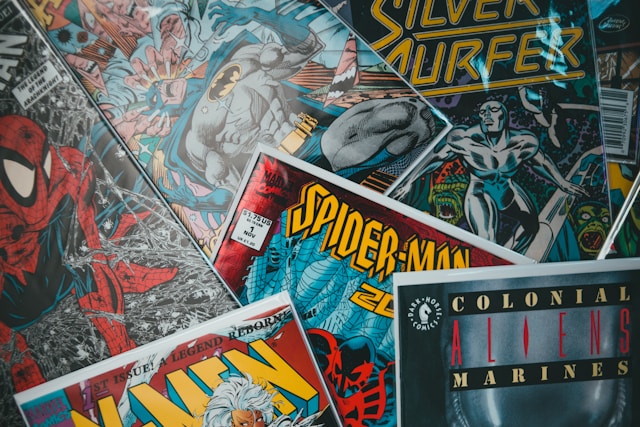Long before the successful movie franchise, writers and artists created a host of characters for Marvel Comics. While these creators transferred their copyrights to Marvel decades ago, under U.S. copyright law, they saw an opportunity to terminate the transfer of their copyrights and acted. The artists and writers were trying to get back the intellectual property ownership over iconic characters which they helped create. Not surprisingly, Disney (who owns Marvel Entertainment) aggressively fought back. While the parties to the multiple suits ended up settling with Disney, the broader issue of the rights of creators hired by companies to develop intellectual property is important to many businesses and individuals.
What Is the Right of Termination under U.S. Copyright Law?
In certain circumstances, U.S. copyright law allows a creator or the creator’s heirs to regain ownership of rights transferred to another party. See 17 U.S.C. §§ 203, 304(c), and 304(d). The purpose is to allow creators to experience the benefits of the economic success of the work long after the license was transferred.
Eligibility requirements for copyright termination vary depending on when the transfer was made, who executed it, and when copyright was originally registered for the work. Generally, the right to terminate a copyright transfer begins 35 years after the execution of the transfer but the right must be exercised within a five-year period. In addition, the creator must give at least two years’ notice of termination and record the notice with the U.S. Copyright Office.
Notably, a work is not subject to termination rights if it is a work- for-hire. Determining whether a work is work-for-hire is typically fact specific. The work-for-hire doctrine provides that the creator does not own the copyright to a work if:
- a work is prepared by an employee within the scope of employment or
- a work is specially ordered or commissioned; provided, however, that the work falls into one of nine types of works listed in the U.S. Copyright Law and the parties expressly agree in a written instrument signed by them that the work is considered a work- for-hire.
Why Were the Cases in Court?
Five writers and artists were within the termination period and served Disney with notices of copyright termination. In response to the termination notices, Disney sued in New York and California to have them declared invalid. The writers and artists, or their heirs and estates, who were involved are Lawrence D. Lieber (Stan Lee’s younger brother), the estate of Steve Ditko, Don Heck, the heirs of Don Rico, and the heirs of Gene Colan. These individuals helped create many Marvel characters, including Doctor Strange, Black Widow, Hawkeye, Iron Man, Ant-Man, Thor, Spiderman, Captain Marvel, Falcon, Blade, and the Wizard. Significant revenue was at stake in the litigation, particularly if the copyright was terminated, as the writers and artists’ ownership over the copyrighted material would have been restored to them. This gave them an opportunity to negotiate with Disney to receive a share of the profits from new works based on their copyrighted material, including movies, television shows, merchandise and other uses of those characters.
Disney has an extensive history of protecting its copyright interest and advocating for copyright laws to be in its favor. For example, a 1998 law extending the length of time that copyrights are protected before they go into the public domain was driven in part by Disney because it was anxious not to lose the rights to Mickey Mouse.
What Were the Legal Arguments?
The writers and artists argued that when the characters were created, they were not works for hire. Instead, they proposed that they were hired as freelancers and independent contractors who transferred their rights to Marvel.
Disney claimed that the works were made for hire and as a result, they should not be subject to termination. The company made a similar argument in a previous case involving Jack Kirby, an illustrator, writer, and editor who co-created Iron Man, the Hulk, Captain America, the Fantastic Four, and others; and whose estate sought to terminate the rights transferred to Marvel. The U.S. Court of Appeals for the Second Circuit ruled in favor of Marvel; they reasoned Kirby’s contributions were works made for hire and therefore not subject to termination. The Estate sought to have the Supreme Court hear this case, but the parties eventually settled, and the matter was dismissed.
What is the Outcome?
In June 2023, Disney dropped the lawsuits against Lawrence D. Lieber and the estates of Don Heck, Gene Colan and Don Rico. These cases were dropped with prejudice so Disney cannot later file the claims again. The estate of Steve Ditko also reached a settlement with Disney and Marvel regarding Ditko’s copyright rights in Spider-Man and Doctor Strange. Ditko’s estate was the last dispute involving copyright termination with Disney and Marvel. While the details of the settlement have not been released, both parties stated they resolved it amicably.
While the details of these settlement agreements are not public knowledge, it is important for creators to carefully consider who they transfer their copyrights to and to protect their intellectual property. Regardless of the outcome of these cases, businesses and writers, artists and other creators should understand work-for-hire rules. Consult an experienced attorney to ensure your rights are protected.
Contributions to this blog by Caroline Miller.





